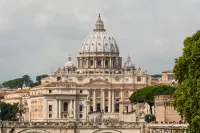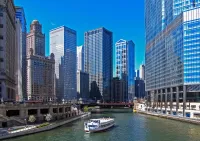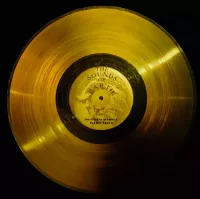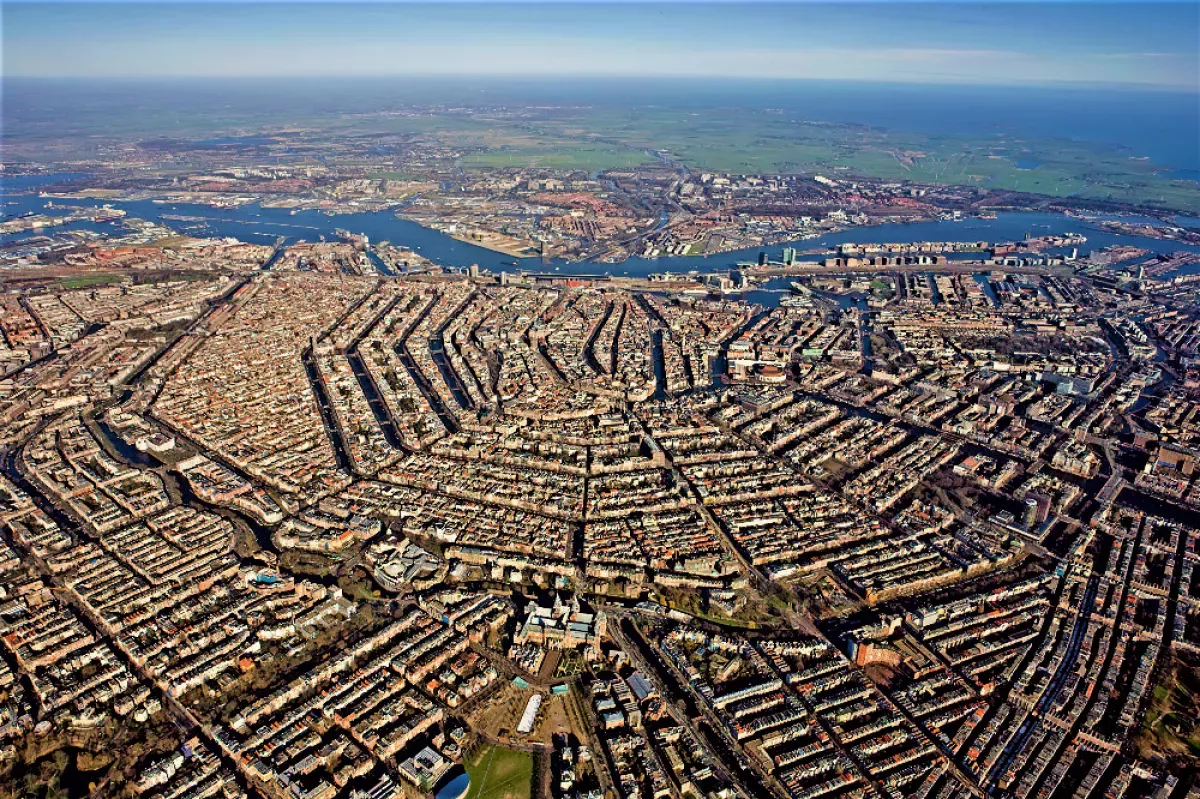Amsterdam, the capital and largest city of the Netherlands, boasts a population of over 933,000 within the city and approximately 2.5 million in its metropolitan area (June 2024). Situated in North Holland, it's known as the "Venice of the North" due to its extensive canal system, recognized as a UNESCO World Heritage Site.
1900: Christianity in Amsterdam
In 1900, Christians were the largest religious group in Amsterdam, comprising 70% of the population, with the Dutch Reformed Church making up 45% and the Catholic Church 25%.
1906: Joseph Conrad's Description of Amsterdam
In 1906, Joseph Conrad provided a brief description of Amsterdam as seen from the seaside in his book, 'The Mirror of the Sea'.
1916: Flood prompts annexation
In 1916, a flood event led to the subsequent annexation of Durgerdam, Holysloot, Zunderdorp and Schellingwoude to Amsterdam in 1921.
1920: Amsterdam Assisted in Hosting Sailing Events for Summer Olympics
In 1920, Amsterdam assisted in hosting some of the sailing events for the Summer Olympics held in neighbouring Antwerp, Belgium by hosting events at Buiten IJ.
January 1921: Annexation of Municipalities to Amsterdam
On January 1, 1921, the municipalities of Durgerdam, Holysloot, Zunderdorp, and Schellingwoude, located north of Amsterdam, were annexed to the city after a flood in 1916.
1924: International Eucharistic Congress in Amsterdam
In 1924, Amsterdam hosted the International Eucharistic Congress, bringing numerous Catholic prelates to the city for festivities in churches and stadiums. Catholic processions in public were still illegal then.
1928: Amsterdam Hosted Summer Olympics
In 1928, Amsterdam hosted the Summer Olympics. The Olympic Stadium built for the occasion has been completely restored and is now used for cultural and sporting events, such as the Amsterdam Marathon.
1932: Amsterdam Planned as Highway Hub
In 1932, Amsterdam was intended to be the hub of the Netherlands highway system, with freeways numbered One to Eight planned to originate from the city.
May 1940: Nazi Germany Invades the Netherlands
On May 10, 1940, Nazi Germany invaded the Netherlands, taking control of the country, and starting a period of occupation for Amsterdam.
February 1941: Reprisals Against Amsterdam Jews
In February 1941, following an attack on a Dutch fascist collaborator, Heinrich Himmler ordered reprisals, leading to the arrest of 427 Amsterdam Jews on February 22, 1941, who were sent to Mauthausen concentration camp.
May 1943: Wave of Arrests and Deportation
On 26 May 1943, the first main wave of arrests, culminating in deportation, occurred in Amsterdam's Jewish Quarter.
June 1943: Wave of Arrests and Deportation
On 20 June 1943, a second main wave of arrests, culminating in deportation, occurred in Amsterdam's Jewish Quarter.
1944: Betrayal of Anne Frank
In August 1944, Anne Frank's hiding place was betrayed, leading to her deportation. She eventually died in Bergen-Belsen concentration camp in early 1945.
May 1945: Liberation of Amsterdam
On May 5, 1945, Amsterdam was liberated by Canadian forces, marking the end of the Nazi occupation and a period of severe crisis with food and fuel scarcity.
1945: Death of Anne Frank
In early 1945, Anne Frank and her sister Margot died in the appalling conditions of Bergen-Belsen concentration camp.
1947: City Motto Bestowed
In 1947, Queen Wilhelmina bestowed the motto 'Heldhaftig, Vastberaden, Barmhartig' (Heroic, Determined, Merciful) on the city of Amsterdam, in recognition of its bravery during the Second World War.
1949: Release of "Aan de Amsterdamse grachten"
The song "Aan de Amsterdamse grachten" was released in 1949 and performed by multiple artists.
1952: Bid Lost for 1952 Summer Olympics
Amsterdam made a bid to host the 1952 Summer Olympics but lost to Helsinki.
1959: Amsterdam's Population Peak
In 1959, Amsterdam's population reached an all-time high of 872,000 residents.
1962: Wim Sonneveld's version of "Aan de Amsterdamse grachten"
Wim Sonneveld released his version of "Aan de Amsterdamse grachten" in 1962 which became the best known.
1964: Release of "Amsterdam" by Jacques Brel
Jacques Brel released his song "Amsterdam" in 1964.
1968: Opening of A8 to Zaandam
Between 1968 and 1974, Road A8, leading north to Zaandam and the A10 Ringroad were opened.
1970: Start of Population Decline
Beginning in 1970, Amsterdam began experiencing a decline in population.
1970: Cancellation of A3 Highway
In 1970, the A3 highway to Rotterdam was cancelled to conserve the Groene Hart.
1973: Sharp population decline
In 1973, Amsterdam experienced a sharp population decline, peaking at a net loss of 25,000 people.
1974: Opening of A10 Ringroad
Between 1968 and 1974, Road A8, leading north to Zaandam and the A10 Ringroad were opened.
1975: Independence of Suriname
After the independence of Suriname in 1975, a large wave of Surinamese people settled in Amsterdam, primarily in the Bijlmer area.
1977: Metro System Inauguration
In 1977, a metro line began operating, connecting the suburb of Bijlmermeer to the center of Amsterdam.
1980: Continued Population Decline
Amsterdam continued experiencing a sharp population decline in 1980.
1981: Division into Boroughs Begins
Since 1981, the municipality of Amsterdam has gradually been divided into semi-autonomous boroughs, called stadsdelen or 'districts'.
1983: Constitutional Revision
Since the 1983 constitutional revision, the constitution mentions 'Amsterdam' and 'capital' in chapter 2, article 32.
1985: Low Point in Population
By 1985, Amsterdam's population had fallen to only 675,570 residents.
1986: Opening of the Stopera
In 1986, the Stopera, combining the city hall and opera house, opened next to the river Amstel.
1986: Establishment of the Dutch National Opera and Ballet
The Dutch National Opera and Ballet (formerly known as Het Muziektheater) was established in 1986.
1991: Amsterdam Hosted World Gymnaestrada
Amsterdam hosted the World Gymnaestrada in 1991.
1992: Bid Lost for 1992 Summer Olympics
Amsterdam made a bid to host the 1992 Summer Olympics but lost to Barcelona.
1993: Founding of Boom Chicago
In 1993, the English-spoken comedy scene in Amsterdam was established with the founding of Boom Chicago, which has its own theatre at Leidseplein.
1996: Ajax move to Johan Cruyff Arena
In 1996, the Eredivisie football club AFC Ajax moved to their current home, the Johan Cruyff Arena, located next to the new Amsterdam Bijlmer ArenA railway station.
1998: Femke Halsema became a member of House of Representatives for GroenLinks
In 1998 Femke Halsema became a member of House of Representatives for GroenLinks.
1999: Addition of New Building to Van Gogh Museum
In 1999, a new building, known as the performance wing and designed by Kisho Kurokawa, was added to the Van Gogh Museum.
1999: Amsterdam Sports Awards
Since 1999, the city of Amsterdam honours the best sportsmen and women at the Amsterdam Sports Awards. In 1999, Boxer Raymond Joval and field hockey midfielder Carole Thate were the first to receive the awards.
1999: Remodeling of Museumplein
The current appearance of Museumplein was realized in 1999 when the square was remodeled.
2000: Bell Beaker Culture Pottery
Around 2000 BC, shards of Bell Beaker culture pottery were found in the prehistoric Amstel bedding under Amsterdam's Damrak and Rokin. These artifacts likely indicate a modest settlement.
2000: Christianity and Islam in Amsterdam
In 2000, Christians constituted the largest religious group in Amsterdam, comprising 28% of the population, while Islam was the next largest religion at 8%, with most followers being Sunni.
2003: New Metro Line Construction
In 2003, construction began on a new metro line connecting the northern and southern parts of the city. This project faced numerous challenges.
2003: Renovation of the Rijksmuseum
In 2003, the Rijksmuseum started a 10-year, 375 million euro renovation.
2006: Demographics of Amsterdam
In 2006, people of non-Western origin made up approximately one-fifth of Amsterdam's population and over 30% of the city's children.
2006: "Rembrandt 400" Theme Year in Amsterdam
The year 2006 in Amsterdam was designated "Rembrandt 400" to celebrate the 400th birthday of Rembrandt van Rijn.
2007: Amsterdam Ranked Among Top European Cities for International Business
According to the 2007 European Cities Monitor, Amsterdam ranked as one of the top five European cities for locating an international business.
2008: Metro project costs exceeded budget
By 2008, the new metro line construction costs had tripled the original budget, leading to construction halts and restarts.
2008: Amsterdam Designated World Book Capital
In 2008, Amsterdam held 140 festivals and events and was designated as the World Book Capital for the year by UNESCO.
2008: Plans to Remodel Museumplein Again
In 2008, plans were made to remodel the Museumplein again due to dissatisfaction with its current appearance among Amsterdam's inhabitants.
2009: Opening of New Hall and Renovation Completion at Stadsschouwburg Amsterdam
In 2009, the new hall of the Stadsschouwburg Amsterdam, Toneelgroep Amsterdam, and Melkweg opened, and the renovation of the front end of the theatre was ready.
May 2010: Amsterdam Boroughs Reduced
In May 2010, the number of Amsterdam boroughs was reduced to eight under a major reform: Amsterdam-Centrum, Amsterdam-Noord, Amsterdam-Oost, Amsterdam-Zuid, Amsterdam-West, Amsterdam Nieuw-West, Amsterdam Zuidoost, and Westpoort.
July 2010: Grachtengordel Added to UNESCO World Heritage List
In July 2010, the Grachtengordel, consisting of the three main concentric canals (Herengracht, Keizersgracht, and Prinsengracht), was added to the UNESCO World Heritage List, recognizing its cultural and historical significance.
2010: Eberhard van der Laan became Mayor
In 2010 Eberhard van der Laan became the Mayor of Amsterdam.
2010: Borough System Restructured
In 2010, the Amsterdam borough system was restructured, with many smaller boroughs merging into larger ones.
2010: Amsterdam Boroughs reach fifteen
In 2010, the number of Amsterdam boroughs reached fifteen.
2011: Femke Halsema leaves House of Representatives
In 2011 Femke Halsema leaves House of Representatives.
2011: "Oude Wolf" Voted "Amsterdams lijflied"
In 2011, "Oude Wolf" by Trio Bier was voted "Amsterdams lijflied" by Het Parool newspaper.
2011: Haarlemmerstraat and Haarlemmerdijk Voted Best Shopping Street
In 2011, Haarlemmerstraat and Haarlemmerdijk were voted as the best shopping street in the Netherlands.
2011: Bicycle Thefts in Amsterdam
In 2011, about 83,000 bicycles were stolen in Amsterdam.
September 2012: Reopening of Stedelijk Museum After Renovations
In September 2012, the Stedelijk Museum reopened after renovations with a new composite extension.
2012: Music Video Filmed in Amsterdam
In 2012, the music video for "Live My Life" by Far East Movement was filmed in various parts of Amsterdam.
2012: Increased Tourism
In 2012, the number of annual visitors to Amsterdam was 10 million, contributing to rising real estate prices.
2012: Opening of Ziggo Dome
The state-of-the-art indoor music arena, Ziggo Dome, opened near Amsterdam Arena in 2012.
April 2013: Reopening of Rijksmuseum After Renovation
The Rijksmuseum's full collection was reopened to the public on 13 April 2013 after a 10-year renovation.
2013: King's Day name change
In 2013, Koninginnedag was renamed Koningsdag (King's Day) following the crowning of King Willem-Alexander.
2014: Governing Majority Formed
After the 2014 municipal council elections, a governing majority of D66, VVD and SP was formed – the first coalition without the Labour Party since World War II.
2014: Schiphol Busiest Airport
As of 2014, Amsterdam Airport Schiphol was the fifth busiest airport in the world measured by international passenger numbers.
2014: New theatre on Danzigerkade
In 2014, a new theatre, Theater Amsterdam, was established on the Danzigerkade in Amsterdam. The modern building with a panoramic view was purpose-built to showcase the play ANNE, which is based on Anne Frank's life.
2014: Cargo Throughput at the Port of Amsterdam
In 2014, the Port of Amsterdam experienced a cargo throughput of 97.4 million tons, consisting primarily of bulk cargo.
2014: Boroughs lose autonomous status
In 2014, under a reform of the Dutch Municipalities Act, the Amsterdam boroughs lost much of their autonomous status, as their district councils were abolished.
2014: Urban Regeneration and Renewal
Since 2014, there has been a renewed focus on urban regeneration and renewal in areas bordering the city center, such as Frederik Hendrikbuurt.
2015: Bicycle Ownership Statistics
According to CBS figures, in 2015 the 442,693 households in Amsterdam owned 847,000 bicycles, averaging 1.91 bicycles per household.
2015: Increased Tourism
By 2015, the annual number of visitors to Amsterdam had risen to 17 million, leading to increased real estate prices and a shift in local shops to tourist-oriented businesses.
2015: Christianity and Islam in Amsterdam
In 2015, Christians remained the largest religious group in Amsterdam, making up 28% of the population. Islam followed with 7.1% of the population, most of whom were Sunni.
2016: Van Gogh Museum Visitors in Amsterdam
In 2016, the Van Gogh Museum had approximately 2.1 million visits, making it the second most visited museum in Amsterdam.
September 2017: Kajsa Ollongren Appointed Acting Mayor
On 18 September 2017, Eberhard van der Laan announced that Kajsa Ollongren would take up his office as acting Mayor of Amsterdam with immediate effect due to ill health.
October 2017: Death of Eberhard van der Laan
Eberhard van der Laan, the Mayor of Amsterdam from 2010, died in October 2017.
October 2017: Eric van der Burg Succeeds as Acting Mayor
On 26 October 2017, Eric van der Burg succeeded Kajsa Ollongren as acting Mayor of Amsterdam.
December 2017: Jozias van Aartsen Appointed Acting Mayor
On 4 December 2017, Jozias van Aartsen was appointed as acting Mayor of Amsterdam.
2017: Hotel Room Occupation Rate in Amsterdam
In 2017, the hotel room occupation rate in Amsterdam was 85%, an increase from 78% in 2006.
2017: Rijksmuseum Visitors in Amsterdam
The Rijksmuseum had 2.16 million visitors in 2017, retaining its position as the most visited museum in Amsterdam.
June 2018: Femke Halsema Appointed Mayor
On 27 June 2018, Femke Halsema was appointed as the first woman to be Mayor of Amsterdam by the King's Commissioner of North Holland for a six-year term.
July 2018: Femke Halsema Began Serving as Mayor
On 12 July 2018, Femke Halsema began serving a six-year term as Mayor of Amsterdam.
2018: Amsterdam Arena Renamed to Johan Cruyff Arena
In 2018, the Amsterdam Arena was renamed the Johan Cruyff Arena.
2018: Completion of New Metro Line
In 2018, the new metro line connecting the northern and southern parts of the city was finally completed.
2019: Amsterdam Tech Hub Ranking
In 2019, Amsterdam was ranked 4th place globally as a top tech hub.
2019: Opening of New Lock in IJmuiden
In 2019, a new lock opened in IJmuiden, enabling the Port of Amsterdam to increase its capacity to 125 million tonnes.
2019: Removal of Parking Spaces Begins
In 2019, the local government of Amsterdam began removing parking spaces in the city.
July 2021: Amsterdam Apologizes for Slave Trade Involvement
On July 1, 2021, the mayor of Amsterdam, Femke Halsema, formally apologized for the city's historical involvement in the slave trade.
2021: Amsterdam Population Figures
In 2021, the municipality of Amsterdam had a population of about 870,000, while Greater Amsterdam had a population of 1,400,000, and the Metropolitan Region Amsterdam had a population of 2.33 million.
2022: Amsterdam City Ranking
In 2022, Amsterdam was ranked the ninth-best city to live in by the Economist Intelligence Unit and 12th in quality of living for environment and infrastructure by Mercer.
May 2023: Amsterdam bans weed smoking in public areas
On 25 May 2023, Amsterdam banned weed smoking in public areas in and around the red light district, in an effort to crackdown on wild tourist behaviour.
2023: Amsterdam will host World Gymnaestrada
Amsterdam is set to host the World Gymnaestrada again in 2023.
2023: Autochthons Minority
In 2023, autochthons were a minority in 40% of Amsterdam's neighborhoods, indicating a growing diversity.
June 2024: Amsterdam Population
In June 2024, Amsterdam's population was 933,680 within the city proper, 1,457,018 in the urban area, and 2,480,394 in the metropolitan area.
2025: Parking Space Reduction Goal
By 2025, the local government of Amsterdam aims to remove 10,000 parking spaces in the city.
2040: Structural Vision Amsterdam 2040 Initiative
The urban renewal and expansion of Amsterdam's center, including the construction of IJburg, is part of the Structural Vision Amsterdam 2040 initiative.
Mentioned in this timeline
Germany officially the Federal Republic of Germany is a nation...
Suriname located in northern South America and sometimes considered part...

The Catholic Church the largest Christian church globally with over...

Barcelona is a major city located on the northeastern coast...

Chicago is the most populous city in Illinois and the...

Music is a cultural universal involving the arrangement of sound...
Trending

2 hours ago Devin Booker returns from injury as Haywood Highsmith debuts for Suns.

2 hours ago Marcus Smart shines with defensive prowess, racking up steals in Lakers' victory.

2 hours ago DeMar DeRozan Trade Rumors: Kings, Hawks Potential Suitors; NBA Picks Targeted

2 hours ago Maxime Raynaud Shines Despite Loss; Praised for Rookie Potential and Shooting.

2 hours ago Rui Hachimura's demand for Lakers' focus surfaces after victories over Warriors and Kings.

2 hours ago Zion Williamson's Status: Lakers Game, Ankle Injury, and Recent Playing Streak
Popular

Hillary Diane Rodham Clinton is a prominent American politician lawyer...

Ken Paxton is an American politician and lawyer serving as...

Jesse Jackson is an American civil rights activist politician and...

Jim Carrey is a Canadian-American actor and comedian celebrated for...

Bill Clinton served as the nd U S President from...

XXXTentacion born Jahseh Dwayne Ricardo Onfroy was a controversial yet...

